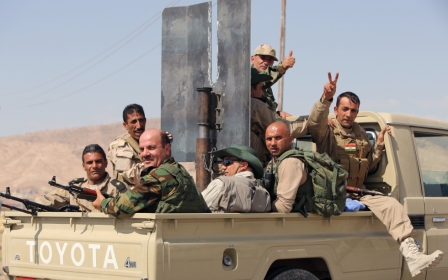Iraqi Kurds to take part in government negotiations, minister

Iraqi Kurdish parties will participate in Iraqi government formation talks, the caretaker Foreign Minister said on Monday.
Hoshiyar Zebari, an Iraqi Kurd, told Reuters that the country’s Kurds had not decided whether to back the new government, but that they would engage in talks.
His remarks are the latest indication that the diplomatic tensions between Baghdad and Erbil might be on the wane.
On Saturday, the main Kurdish political leaders agreed to resume the talks, although they said they would only negotiate through small, but organised delegations.
“Our meeting focused on two main points,” Bilal Sulaiman, a senior official of the Kurdistan Islamic League (Komal) told Kurdish news agency Rudaw. “First point was the structure of the cabinet [Prime Minister designate Haidar] al-Abadi has been tasked to form, and second was a proposal by the Shiite alliance for renewed talks between Kurds, Shiites and Sunnis.”
Last week, Kurdish regional president, Massoud Barzani, also declared his support for Abadi but stressed that any new government would have to "involve all Iraqi factions."
Outgoing prime minister Nouri al-Maliki agreed to step down last week and allow Abadi, who stems from the same Shiite alliance, to try and form a government.
While Maliki and his Shiite block won the most amount of seats in Iraq's April elections, Maliki was unable to form a government. Many, inside and outside Iraq, at least partially blame him and his sectarian policies for the rise, and rapid spread, of Islamic State in recent months.
Stay informed with MEE's newsletters
Sign up to get the latest alerts, insights and analysis, starting with Turkey Unpacked
Middle East Eye delivers independent and unrivalled coverage and analysis of the Middle East, North Africa and beyond. To learn more about republishing this content and the associated fees, please fill out this form. More about MEE can be found here.




